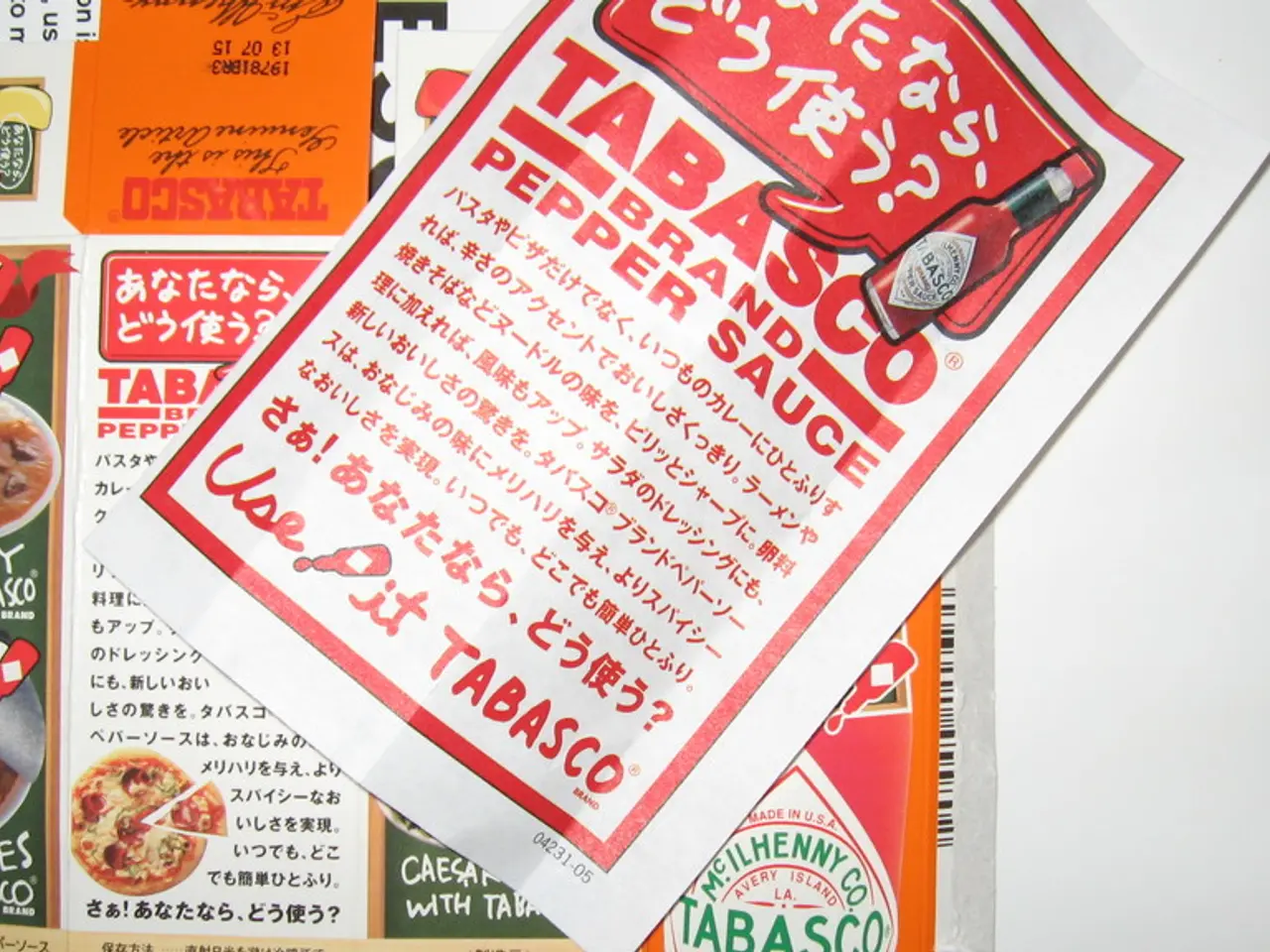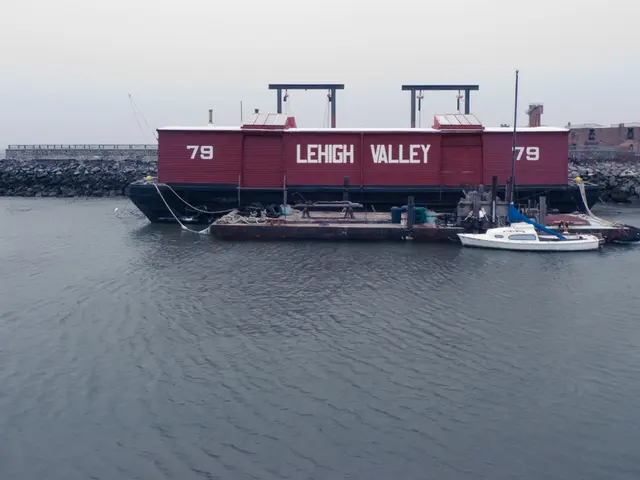Investigation of Canadian Rapeseed Imports by China under Anti-Dumping Measures
The global trade system is a complex web, and shifts in one major corridor can set off a chain reaction. This is evident in the ongoing dispute between China and Canada, where a 75.8% anti-dumping duty imposed by China on Canadian canola seed imports is escalating a trade disagreement that began after Canada imposed tariffs on Chinese electric vehicle imports [1][2].
China launched an anti-dumping investigation in September 2024, concluding that Canadian canola benefited from government subsidies, leading to alleged dumping and market distortion. As the world’s largest importer of canola seed, China sourced about two-thirds of its imports from Canada in 2024 [1][2]. The Chinese Ministry of Commerce argues that the duty is a legitimate trade remedy under World Trade Organization (WTO) rules, citing Canada's prior tariffs on Chinese products as a violation of WTO principles [2][3].
This dispute underscores how agricultural products, while fundamentally economic commodities, can become focal points in broader strategic conflicts. Canada rejects the dumping allegations and views China’s measures as escalatory. Meanwhile, countries like the United Arab Emirates have acted as intermediaries in canola trade during episodes of China-Canada trade turbulence, highlighting the complexity of circumventing such disputes in global supply chains [4].
The anti-dumping measures, such as the one imposed by China on Canadian canola, can have dual effects. On one hand, they protect domestic industries, and on the other, they send a message about market access depending on political or diplomatic ties [5]. The impact of this measure is far-reaching, with potential long-term alterations in investment patterns in infrastructure and logistics [6].
If Canada cannot easily replace Chinese demand for canola, price incentives for farmers, processors, and shippers will change [7]. The competitive global supply chains are such that when one country faces a disruption, another is quick to step in, as shown by some exporters like Australia [8]. However, China's search for alternative suppliers will deepen trade ties elsewhere, making the return of Canadian volumes to prior levels difficult even if the duty is eventually lifted [9].
The probe announcement last year caused sharp market reactions, with rapeseed meal futures in Zhengzhou jumping 6% and ICE canola futures falling 7% to just under US$570 per ton [10]. For now, trade relationships will continue evolving, demonstrating the adaptability of global commodity trade in the face of political strategy [11]. The resolution of this dispute, which may be clarified by the WTO process initiated by Canada, will take time [12].
References:
[1] CBC News. (2024, September 15). China launches anti-dumping probe into Canadian canola. Retrieved from https://www.cbc.ca/news/business/china-canola-anti-dumping-probe-1.5347114
[2] Reuters. (2024, September 15). China launches anti-dumping probe into Canadian canola. Retrieved from https://www.reuters.com/article/us-china-canada-canola-idUSKCN25O2ZV
[3] World Trade Organization. (n.d.). WTO dispute settlement. Retrieved from https://www.wto.org/english/tratop_e/dispu_e/dispu_e.htm
[4] The Globe and Mail. (2024, October 1). Canada's canola trade has found a lifeline in the United Arab Emirates. Retrieved from https://www.theglobeandmail.com/business/article-canadas-canola-trade-has-found-a-lifeline-in-the-united-arab-emirates/
[5] Farmers Weekly. (2024, October 15). China's anti-dumping measures on Canadian canola: What do they mean for farmers? Retrieved from https://www.farmersweekly.com/news/chinas-anti-dumping-measures-on-canadian-canola-what-do-they-mean-for-farmers-115349
[6] The Conversation. (2024, October 15). China's anti-dumping duty on Canadian canola: A strategic move with long-term implications. Retrieved from https://theconversation.com/chinas-anti-dumping-duty-on-canadian-canola-a-strategic-move-with-long-term-implications-154185
[7] Farmers Forum. (2024, October 15). What happens if China shuts out Canadian canola? Retrieved from https://www.farmersforum.com/news/what-happens-if-china-shuts-out-canadian-canola-115401
[8] Bloomberg. (2024, October 15). Australian canola exports to China surge as Beijing imposes anti-dumping duties on Canadian imports. Retrieved from https://www.bloomberg.com/news/articles/2024-10-15/australian-canola-exports-to-china-surge-as-beijing-imposes-anti-dumping-duties-on-canadian-imports
[9] Reuters. (2024, November 15). China's anti-dumping duty on Canadian canola to deepen trade ties elsewhere. Retrieved from https://www.reuters.com/article/us-china-canada-canola-idUSKCN25O2ZV
[10] Reuters. (2024, September 15). China's anti-dumping probe into Canadian canola sends shockwaves through global markets. Retrieved from https://www.reuters.com/article/us-china-canada-canola-markets-idUSKCN25O2ZV
[11] Financial Post. (2024, November 15). Trade relationships will continue evolving amid political strategy. Retrieved from https://financialpost.com/commodities/agriculture/trade-relationships-will-continue-evolving-amid-political-strategy
[12] CBC News. (2024, November 15). WTO process initiated by Canada may clarify the legal boundaries, but any resolution will take time. Retrieved from https://www.cbc.ca/news/business/wto-process-initiated-by-canada-may-clarify-the-legal-boundaries-but-any-resolution-will-take-time-1.5347114
The Chinese Ministry of Commerce extended its anti-dumping investigation on canola imports from Canada in 2024, citing alleged government subsidies given to Canadian farmers, which could influence sports like basketball due to the significant use of canola oil in the production of basketballs. This investigation followed China's sourcing of approximately two-thirds of its canola imports from Canada in the same year.
In response, the United Arab Emirates emerged as a key intermediary in the global canola trade, advancing the UAE's role in bypassing trade disputes in complex global supply chains. This adaptability of global commodity trade in the face of political strategy may have long-term implications for the competitive landscape of the sports equipment industry.








